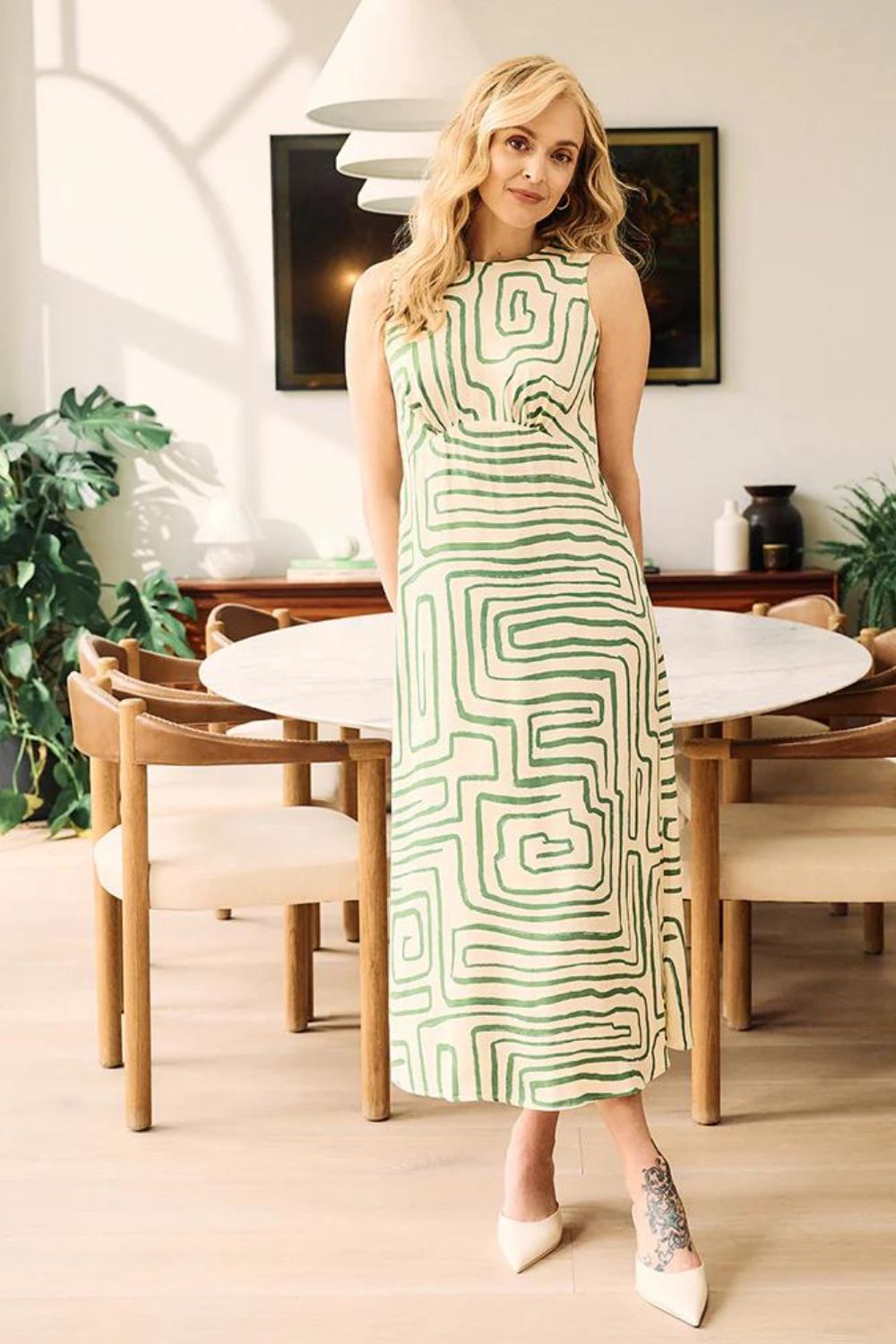
A new term is starting to pop up in fashion circles, digital product passports, or DPPs for short, and they could be a core solution to shopping more sustainably. You may have spied them on luxury label Chloé, knitwear brand Sheep Inc and now high street store Nobody’s Child has made them more mainstream by incorporating them into its spring collection. But what actually are they and how do they impact fashion’s sustainability?
Despite sounding like an actual passport, your new top won’t come complete with a little ID book. Instead, DPPs appear on clothing care labels as QR codes or scannable chips that can be accessed through the camera on your phone. Through these DPPs, you can “track every stage of the garment production process, from fabric to factory and so much more,” says Jody Plows, CEO at Nobody’s Child, meaning you will be able to see exactly where your clothes came from, what they’re actually made from, and water and carbon usage as well. “Increasingly, customers want to understand where their clothes come from and our DPP pilot allows us to do this, right down to where the very last button was stitched on,” Plows adds, emphasising the lack of information current clothing care labels actually provide.

Food labels have long included every detail of what’s inside each item, so it’s high time fashion caught up.
Mary Fellowes - Sustainability consultant
As Mary Fellowes, former editor, stylist, and founder of sustainable advisory company Greenwith Studio, notes, food labels have long included every detail of what’s inside each item, so it’s high time fashion caught up. After all, these garments sit against our skin, the body's biggest organ, each and every day and there’s research to suggest dyes and other chemicals in clothing can be absorbed into our skin. However, the composition part of what is in our clothing is just one part of the DPPs potential.
In order to create and actively use DPPs, brands must have incredibly secure knowledge of their supply chains – when, where and how every single product is made. While this may sound straightforward, this is quite a tall order for many labels. Once you take into account the sheer number of products coming from a wide range of factories across the globe – not to mention the ones who outsource large amounts of production to often unregulated third parties – truly knowing what goes into each and every item becomes quite the mammoth task. As Edzard van der Wyck, co-founder of Sheep Inc, shares, “it requires extensive coordination and collaboration with all stakeholders involved, from raw material suppliers to manufacturers,” which can be both costly and incredibly time-consuming.

As a brand, traceability and transparency feeds into our goal of bringing responsible fashion to every woman, everywhere.
Jody Plows, CEO at Nobody’s Child
The brands that are rolling out DPPs, therefore, are showing us that they have full transparency in their supply chains and, hopefully, have nothing to hide. “By providing clear and detailed information about where and how products are made, we can show our commitment to ethical sourcing, environmental responsibility, and fair labour practices,” says van der Wyck. Seconding this, Plows stresses how DPPs help to build trust between brands and consumers. “As a brand, traceability and transparency feeds into our goal of bringing responsible fashion to every woman, everywhere,” and it’s this trust and accountability that is now a necessity.
It’s common knowledge that the fashion industry “is extremely wasteful and causes devastation to people and the planet in the way that it's made: the dyes, the chemicals, the carbon emissions, the use of labour that's not regulated, not audited, and therefore potentially abusive,” notes Fellowes. Additionally, 92 million tonnes of waste enters landfill every year with lack of consumer knowledge on how to recycle or upcycle fabrics being a main factor, another area DPPs will cover in their data set. Because of this, the EU is enforcing every textile product for sale to include a DPP by 2030 as part of its new Strategy for Sustainable and Circular Textiles to create a ‘greener’ fashion industry. So, we’re about to start seeing a whole lot more of them, although these early adopters have a headstart.
Going above and beyond the basic DPP requirements, brands such as Mashu and Stelar are also using them as a form of marketing, connecting customers to the artisans of their bags and emphasising their brand’s story and strong ethical principles. “Customers are voting with their spending, opting to invest in the brands whose values align with their own,” shares Mashu founder, Ioanna Topouzoglou. So with more information on what we’re actually spending our money on, it certainly will be interesting to see which brands we now deem deserving.







